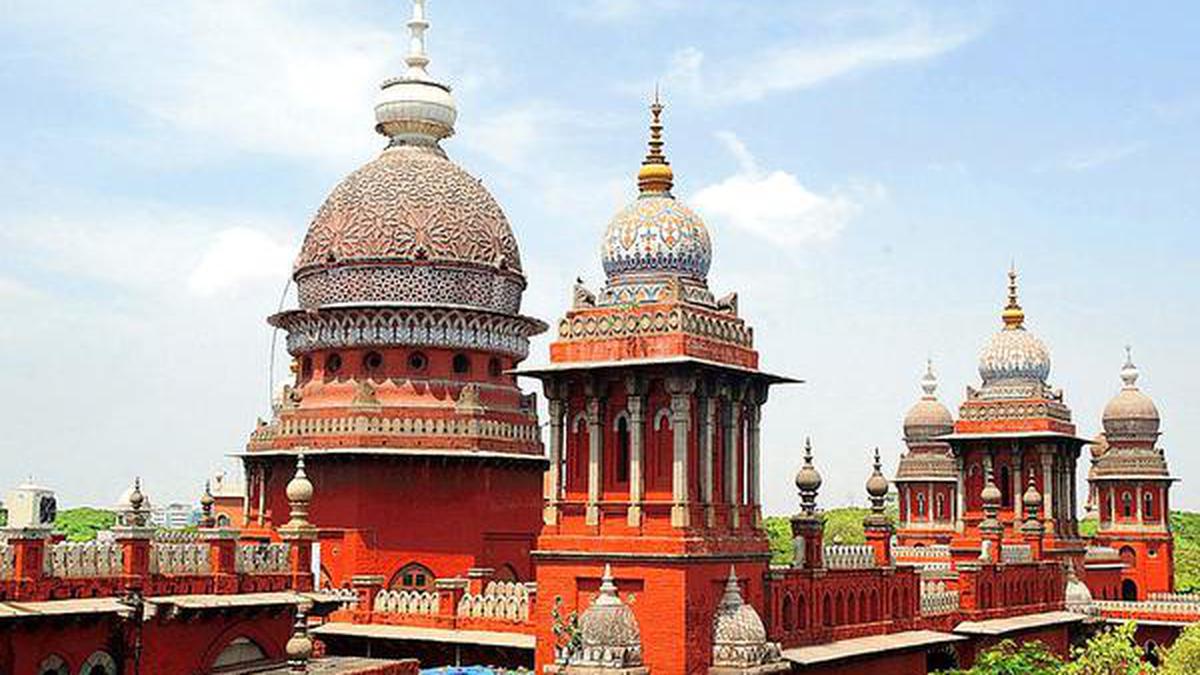
T.N. Minister Senthilbalaji’s arrest | Madras High Court Chief Justice names C.V. Karthikeyan as third judge to hear case on legality of detention
The Hindu
Madras High Court Chief Justice S.V. Gangapurwala has named Justice C.V. Karthikeyan as the third judge to hear a habeas corpus petition (HCP) filed by the wife of Minister V. Senthilbalaji, who was arrested by the Directorate of Enforcement (ED) on June 14, 2023, in a money laundering case and remains in a private hospital now, in judicial custody.
Madras High Court Chief Justice S.V. Gangapurwala has named Justice C.V. Karthikeyan as the third judge to hear a habeas corpus petition (HCP) filed by the wife of Minister V. Senthilbalaji, who was arrested by the Directorate of Enforcement (ED) on June 14, 2023, in a money laundering case and remains in a private hospital now, in judicial custody.
The necessity for naming a third judge to hear the case afresh had arisen pursuant to a split verdict delivered by a Division Bench of Justices J. Nisha Banu and Justices D. Bharatha Chakravarthy on Tuesday. Justice Karthikeyan will hear the arguments afresh and his decision will tilt the verdict by a majority of 2:1
Justice J. Nisha Banu had held the HCP to be maintainable, declared the Minister’s detention to be illegal and consequently ordered his release forthwith. However, Justice D. Bharatha Chakravarthy disagreed with the conclusions as well as reasons given by the senior judge in the Bench. He dismissed the HCP and held it to be not maintainable.
Penning down reasons for her conclusions, Justice Banu wrote that the relevant date for deciding whether a person’s detention was legal or not would be the date when the HCP related to his detention gets heard by the court. In the present case, the Minister was already in the custody of the ED when the HCP was heard on June 22, and this custody was illegal, she said.
The judge pointed out that the Division Bench led by her had passed an order on June 15 to shift the Minister from a government hospital to a private hospital for a heart surgery. Then, the Bench had made it abundantly clear that the Minister would remain in judicial custody even after being shifted to the private hospital.
Despite such a categorical order, the ED had approached the Principal Sessions Court in Chennai seeking permission to take the Minister into their custody for interrogation and the Sessions Court too had granted permission for custody of eight days on June 16 though in law, ED officials have no authority whatsoever to take any person into their custody, Justice Banu said.
She said, the Parliament had consciously not empowered ED officials to keep an accused person in a money laundering case in custody beyond 24 hours of his/her arrest possibly because the evidences in such cases were predominantly documentary in nature and they could be collected easily from banking channels using the sweeping powers conferred on the investigators.

Describing the Special Intensive Revision (SIR) drive under way in Bihar as “an invasive reconstruction of the electoral roll,” Dipankar Bhattacharya, general secretary of the Communist Party of India (Marxist-Leninist) Liberation, said States including Kerala should be on guard as it could be applied in other parts of the country as well.





















 Run 3 Space | Play Space Running Game
Run 3 Space | Play Space Running Game Traffic Jam 3D | Online Racing Game
Traffic Jam 3D | Online Racing Game Duck Hunt | Play Old Classic Game
Duck Hunt | Play Old Classic Game










